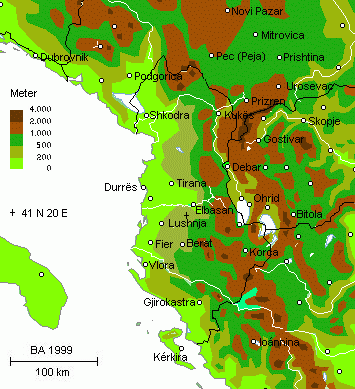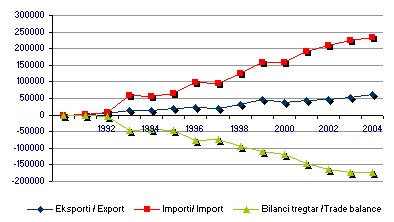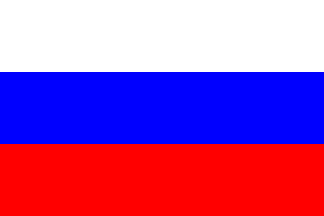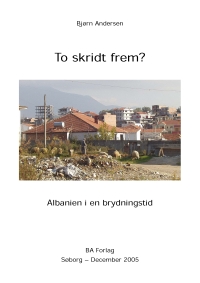Sidste Nyt fra Albanien, Kosóva og Makedonien
The Latest News from Albania, Kosóva and Macedonia
![]()
# 331 - 9' årgang - 21.02.2007
Version 1.0 •
PDF for printing •
Info om »Sidste Nyt« •
Tidligere numre
![]()
Udgiver:
Bjørn Andersen
Publisher:
Bjoern Andersen
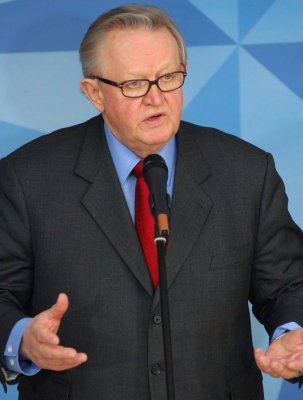
Martti Ahtisaari forelægger sin Kosovo-plan for NATO, Februar 2007 [Foto: NATO/UNOSEK]











